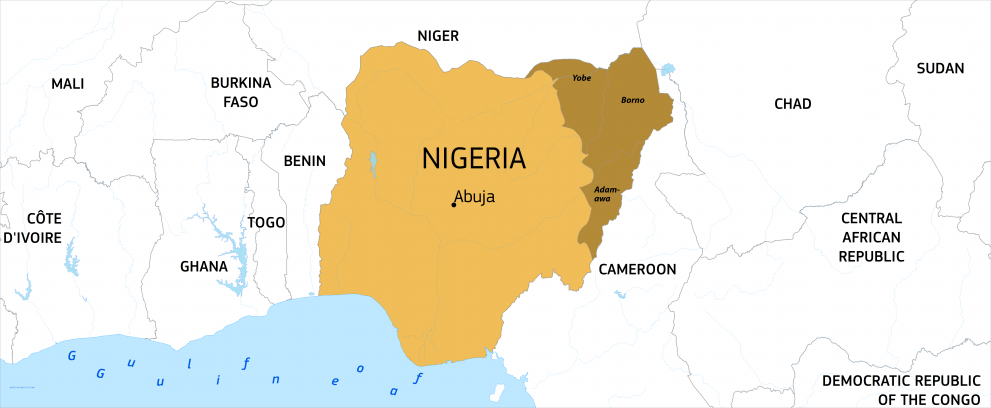Introduction
In North-East Nigeria, 7.9 million people require humanitarian aid. According to the latest Cadre Harmonisé projections, 5 million people in the North-East may require emergency food assistance in 2025, which is 4% higher than a year ago.
According to the United Nations, the conflict in the North-East has already claimed more than 600,000 lives up to 2021 and some 17,139 more between 2021 and 2023. Violence has led to widespread forced displacement and acute violations of human rights and international humanitarian law.
More than 4 million people have been displaced since the onset of the crisis, with 63% for 5 years or more.
What are the needs?
There are various components to the crisis in Nigeria: (i) insurgency in the North-East, (ii) surging banditry violence and other armed group in the North-West, (iii) incessant inter-community conflict in the Middle Belt, (iv) a growing Cameroonian refugee population in the South and (v) natural induced disaster like floods.
More than 14 years of conflict between non-state armed groups and government forces in Borno, Adamawa and Yobe states in the North-East has resulted in acute humanitarian needs:
- 2.3 million people were displaced internally and more than 385,000 in neighbouring countries – the majority living in makeshift settlements or highly-congested camps, relying mostly on local communities, authorities, and humanitarian organizations,
- disturbing levels of food insecurity – 5 million people may require emergency food assistance in 2025 - and worsening levels of life-threatening malnutrition among children,
- due to the hostilities and access constraints, aid workers cannot reach an estimated 1 million people in the North-East. These issues hinder the delivery of life-saving assistance, which is crucial in view of the alarming levels of food insecurity.
The North-West is plagued by growing insecurity caused by a combination of community violence, herders-farmers clashes and attacks from criminal groups and armed bandits. This has resulted in a dire humanitarian situation with over 685,000 people displaced and alarming levels of food insecurity – In 3 of the most affected States of the North-West, 5.1 million people may require emergency food assistance in 2025 and alarming levels of life-threatening malnutrition among children.
Humanitarian workers continue risking their lives to deliver aid to those in need. In 2019, 12 humanitarian workers were executed by non-state armed groups, and 4 others were killed in 2020, with frequent security incidents against humanitarians. In 2023, 1 humanitarian worker was abducted and killed, and 5 others were abducted.

How are we helping?
The EU is one of the leading contributors to humanitarian aid in Nigeria. In 2024, the EU allocated €48.7 million. In 2023, the EU had allocated €47.4 million in humanitarian aid.
Since 2014, the EU has provided close to €498 million to help people in need in the country.
Part of EU humanitarian funding is used to address food insecurity. We provide immediate assistance to cover the basic needs of the most vulnerable internally displaced people and host communities in the country. The EU also supports Nigerians who seek refuge in other countries affected by the conflict in Nigeria, namely Cameroon (Far North region), Chad (Lake region), and Niger (Diffa region).
EU humanitarian aid in Nigeria helps to meet the basic needs of the conflict-affected people by supporting emergency food aid, shelter, access to clean water, sanitation and hygiene, basic primary healthcare, protection and education.
The EU currently funds food assistance in the form of cash transfers, vouchers, food rations for families, ready-to-use therapeutic food, and essential medicines to treat severely malnourished children.
To facilitate humanitarian access for people in need, the EU supports the United Nations Humanitarian Air Service (UNHAS), which enables aid workers to reach isolated areas.
Given the special protection needs of women and children that arise in conflict situations, apposite community-based services receive EU funding. The aim is to provide the necessary psychosocial support and referral services to unaccompanied children and victims of gender-based violence. Among the EU-funded actions are also projects that give children trapped in humanitarian crises a basic education alongside essential school supplies.
The EU is supporting preparedness initiatives in disaster-prone areas in Nigeria. These help vulnerable people better prepare for and reduce the impact of recurring natural hazards, such as epidemics and floods. Through these projects, communities receive essential information about risks and prevention. This strengthens the local response through planning and preventive actions.
Beyond trying to meet immediate humanitarian needs, joint efforts with development partners are required to help build long-term resilience. The EU is promoting, where possible, linkages between humanitarian, development, and peace-building dimensions to address the needs of vulnerable people and offer them social protection through a more long-term and holistic approach.
Through its development assistance, the EU aims to build long-term resilience in conflict-affected communities by addressing the underlying causes of violent conflict, supporting basic services and helping people to support themselves.
Last updated: 10/02/2025
Facts & figures
7.9 million people need humanitarian assistance in North-East Nigeria (UNOCHA)
2.3 million forcibly displaced and 2 million returnees in North-East Nigeria (IOM)
33 million food insecure people across Nigeria during 2025 (Cadre Harmonisé), 5 million of which in the North-East and 5.1 million in the most affected States of North-West
1.8 million children are expected to suffer from severe acute malnutrition.
EU humanitarian funding:
€48.7 million in 2024
€47.4 million in 2023
€498 million since 2014

